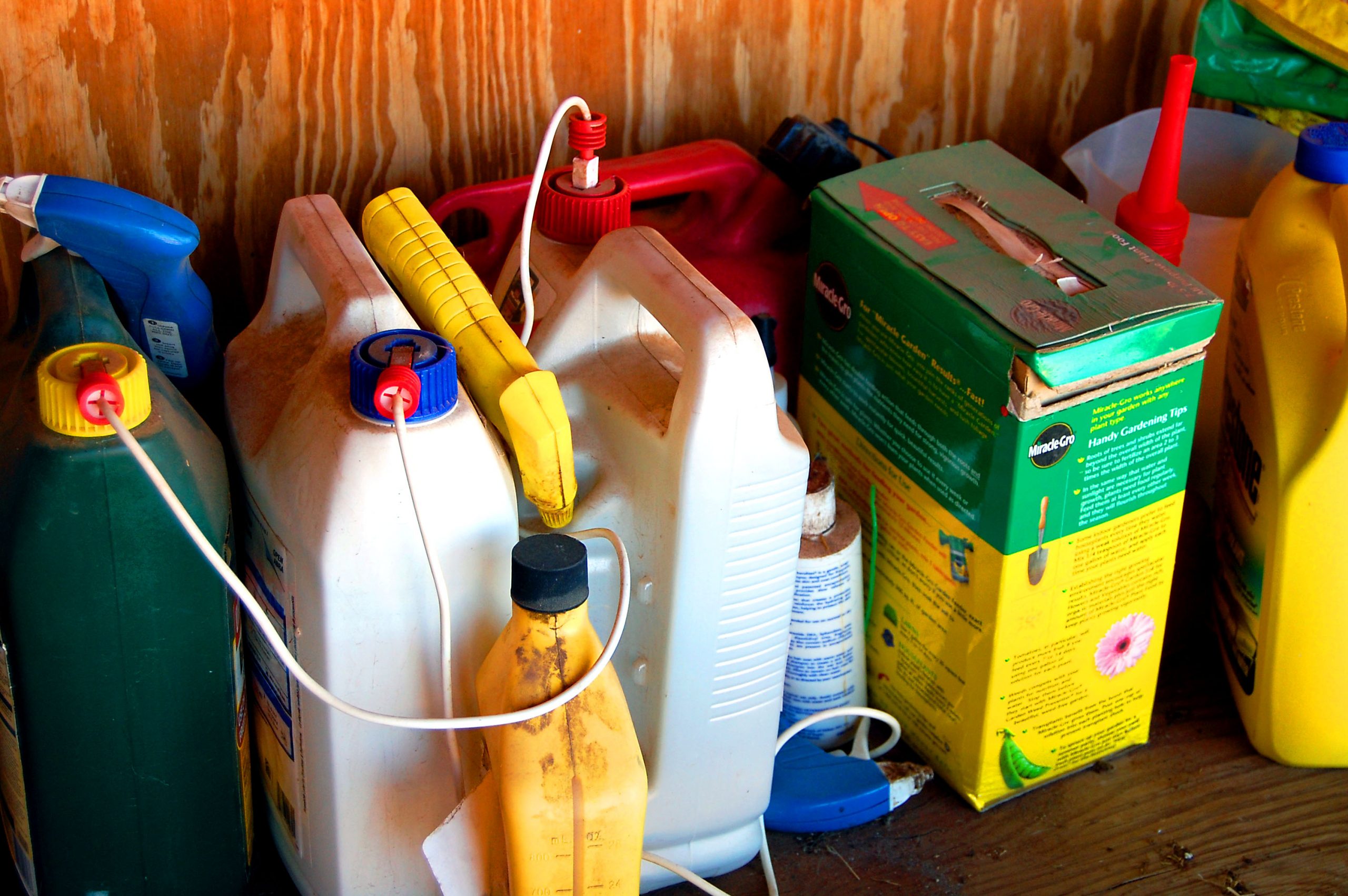Friends of the Earth reports (and I have confirmed) that 99.9% of Monarch Butterflies have disappeared. There were once 4.5 million. Currently, as few as 2000 exist).* Bayer-Monsanto’s RoundUp, the world’s most widely used insecticide, kills milkweed (the only food that young monarchs eat). RoundUp employs the chemical glyphosate.
* According to www.WesternMonarchCount.org, Monarch populations that winter along the California coast hit a low of less than 2,000 butterflies in 2000—a 99.9% decline since the 1980s. We must take action now to save the western monarch migration.
Neonics are the short name for Neonicotinoid pesticides What they do to bees: Weakens their immune system; affects their ability to navigate back to their home; and sends them home (if they can find it) with contaminated pollen (which ends up in your fruit, vegetables, honey, and your body).
Neonics are neurotoxic insecticides, pesticides designed to kill insects by attacking their nerve cells. According to Science Daily, they may also have an impact on human health by disrupting our hormonal systems (altering estrogen production).
Neonics:
• Acetamiprid
• Clothianidin
• Dinotefuran
• Imidacloprid
• Nitenpyram
• Thiocloprid
• Thiamethoxam
Pesticides are a key driver of the insect apocalypse.
Research shows that agricultural pesticides – a term that encompasses insecticides, herbicides and fungicides – are one of the main drivers of insect declines worldwide, along with habitat loss and climate change. Forty percent of insect species face extinction in coming decades, leading scientists to warn of “catastrophic ecosystem collapse” if we don’t change the way we farm.
Many pesticides commonly used to grow food in the U.S. kill bees, butterflies and other beneficial insects. These same pesticides also harm human health. Among those of highest concern are neonicotinoids (made by Germany’s Bayer and other companies), chlorpyrifos, and glyphosate (active ingredient in Monsanto’s RoundUp, the most widely used pesticide in all of human history).
But we can’t just focus on a few problematic pesticides at a time. Without a holistic shift to organic and regenerative farming, farmers will likely replace one harmful pesticide with another, a process known as regrettable substitution. These lists provide a more extensive picture of pesticides of concern:
• Friends of the Earth’s list of pesticides of concern for pollinators
• Pesticide Action Network’s list of Highly Hazardous Pesticides
While other governments have followed the science and banned key pollinator-toxic pesticides, the U.S. government has been expanding use of pesticides that we know kill bees and harm people. The five largest pesticide manufacturers — Bayer-Monsanto, Dow-Dupont (Corteva), FMC , BASF and Syngenta — reaped $13.4 billion in profit in 2018. One third, or $4.8 billion, came from pesticides known to be highly toxic to bees and people.
The good news is we have the solution. Decades of research shows that we need a rapid shift to ecological agriculture in order to feed all people now and into the future while protecting the pollinators and other natural resources that our food system depends on.
It takes 60,000 bees to pollinate one acre of orchard. Each year, over 1 billion pounds of pesticides are applied to crops in the U.S., and an estimated 5.6 billion pounds worldwide. The federal government estimates that there are more than 20,000 pesticide poisonings among farmworkers and others who live or go to school near fields where pesticides are applied.
According to the Washington Post, North America has lost 3 billion birds in the last 50 years. Friends of the Earth states that North America’s birds, from tiny hummingbirds to insect-eating birds and owls, are in a struggle for survival amidst an onslaught of toxic pesticides, including neonics, which hurt birds’ ability to reproduce, migrate, and find food.
Join us in taking a stand against pesticides. Contact Climate change organizations and Non-profit groups. Take action. Get involved.



40prr8
d9urst
kstu4n
i60gp4
6pb1qk
g4iryp
zlox7w
ngz2bn
an261r
giijk9
y9yur9